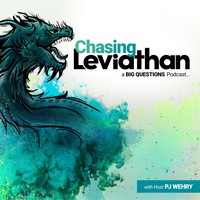

#3067
Mentioned in 13 episodes
Ideas have consequences
Book • 1948
In 'Ideas Have Consequences,' Richard M. Weaver argues that the decline of Western civilization is a result of the increasing acceptance of relativism over absolute reality.
Despite advancements in knowledge, this shift away from the realist intellectual tradition has weakened Western society's capacity for reason, leading to catastrophic consequences for social order and individual rights.
Weaver proposes a remedy in the renewed acceptance of absolute reality and the recognition that ideas, like actions, have consequences.
The book also includes a foreword by Roger Kimball and an afterword by Ted J. Smith III, providing additional context and insights into Weaver's work and its historical significance.
Despite advancements in knowledge, this shift away from the realist intellectual tradition has weakened Western society's capacity for reason, leading to catastrophic consequences for social order and individual rights.
Weaver proposes a remedy in the renewed acceptance of absolute reality and the recognition that ideas, like actions, have consequences.
The book also includes a foreword by Roger Kimball and an afterword by Ted J. Smith III, providing additional context and insights into Weaver's work and its historical significance.
Mentioned by















Mentioned in 13 episodes
Mentioned by Laura Field as a book discussing how the fall of modernity traces back to nominalism.

190 snips
So, what exactly is the “New Right?”
Mentioned by 



Laura K. Field

66 snips
The Furious Minds of MAGA (w/ Laura Field)
Mentioned in the context of Frank Meyer editing Weaver's work and considering the book foundational.

56 snips
Frank Meyer, Inventor of Conservatism (w/ Daniel J. Flynn)
Mentioned by Patrick Deneen as being very true when understanding basic philosophical assumptions in the real world.

40 snips
Why Catholics CAN’T Be Libertarian: The Lie That Poisoned Both Left and Right | Patrick Deneen
Mentioned by 



Jonah Goldberg

32 snips
Unsettled Colonialism
Mentioned by 



Dan McCarthy

20 snips
Ep. 2660 What the Iran Strike Says About Trump, with Dan McCarthy
Mentioned by ![undefined]()


Greg Schulz

14 snips
Seminex 2.0, a Conversation with Rev. Dr. Greg Schulz
Mentioned by 



Christine Rosen

11 snips
Mailbag: Why Do We Think You Listen?
Mentioned by 



Jonah Goldberg

11 snips
The Revolutions of 1776 | Interview: Phillip Muñoz
Mentioned by ![undefined]()


PJ Weary

Theological Origins of Modernity with Dr. Michael Allen Gillespie
Mentioned by ![undefined]()


George Bagby

Private Schools Won't Save You w/ George Bagby: The J. Burden Show Ep. 377
Mentioned by 



Jonah Goldberg

Pavement Paradise
Recommended by ![undefined]()


Pedro Jobim

#157 | COMO AS TENSÕES GLOBAIS ESTÃO AFETANDO A ECONOMIA BRASILEIRA
Recommended as a work that explores the blowback that comes from bad ideas giving very good press.

The Political Thought of David Hume w/ Aaron Zubia
Mentioned as a book that had a big impact on Frank Meyer.

The Daily Signal Presents “The “Signal Sitdown - The Communist Who Invented Modern Conservatism with Daniel Flynn
Mentioned by ![undefined]()


George Will

Ben Shapiro And George Will Discuss The Woke Future Of America
Mentioned by Les Sillars, reflecting on the consequences of progressive politics and policies.

1.3.25 Europe redefines medical success, remembering prominent people in arts and culture, and a word from WORLD’s editor in chief


